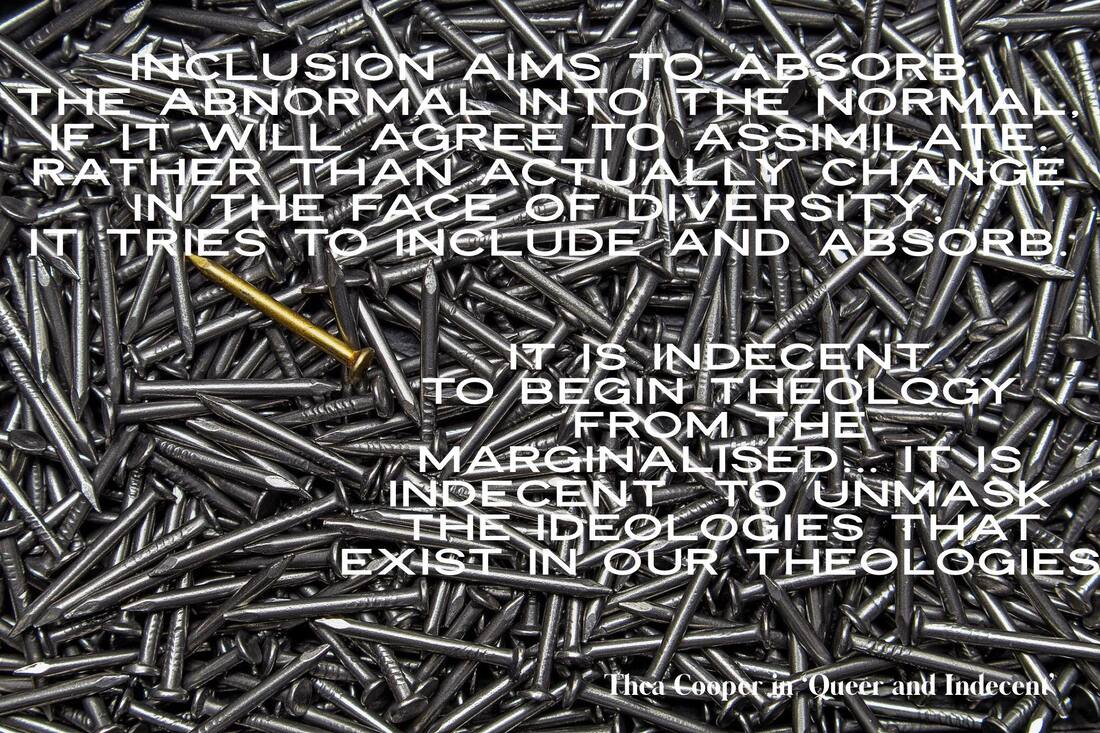|
One of the major challenges for both Faith bodies, like Churches, and for the wider society is taking marginalised people seriously in their/our own right. 'Inclusion' is for example a frequently used term among those who express some interest and support of transgender people. Yet perhaps, as Marcella Althaus-Reid outlined, it is recognising the voices and bodies and socio-economic realities of 'indecency' in people's lives that is the real faith gift and challenge. Too much 'inclusion' keeps the frameworks in place, coopting a few individuals or making a few, sometimes quite superficial, changes. As with meeting the challenges of race, 'cheap grace' is all too easy. Theologically however, was Jesus however about 'inclusion', or constantly speaking, acting, and embodying 'indecency'?
1 Comment
 'I will not be silent, nor hidden forever. For I am a transgender woman and I will come to birth. Though my birthing is painful, messy and rocks the cradle, it offers tidings of great joy, and a more just, diverse and beautiful world. It overturns powers and principalities, lifting up the lowly, ransoming my people from darkness, silence and death.' - so begins the reflection below, entitled I Am That I Will Be: for the transgender Christa who is coming to birth (after Marcella Althaus Reid). I wrote this recently on retreat, pondering the great themes of Advent (particularly regarding Mary and the birthing of Christ(a)) in the context of the continuing struggles of transgender people to come fully to birth in our world, in its secular and religious spaces. It is an affirmation of transgender strength and joy in the midst of current birth-pangs, and of the promise contained in the liberation of gender diverse people. It is, in part, a tribute to Marcella Althaus Reid, for her contribution in opening up the way spiritually, not least through her proclamation and call to Indecent Theology. Just as she encouraged us to rework our received ideas and symbols by embracing the experience of the despised and marginalised, so my own cry is for the liberating story of Mary and her child to be revisited and reshaped by transgender experience. It is thus partly a protest against the taming, and spiritually over-decorous confining of Mary and her child, in the transforming spirit of the Magnificat and the renaming and reordering of God and world. It is not intended to dismiss the life-giving insights others find in traditional readings of Advent or aspects of Mariology. It is however a contribution to greater light and generative life in this season and beyond... |
AuthorThe Revd Dr Jo Inkpin: Archives
March 2024
Categories
All
|

 RSS Feed
RSS Feed